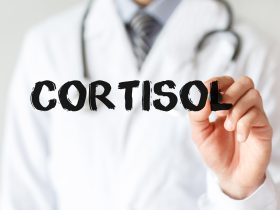In recent years, medical research has made remarkable strides in understanding and treating various neurological disorders. Among these, Multiple Sclerosis (MS) has gained significant attention due to its complex nature and the profound impact it has on the lives of those affected.
However, what if we could shift the focus from primarily managing symptoms to actually preventing the development of this debilitating condition? The concept of preventative treatment for Multiple Sclerosis holds great promise, potentially changing the landscape of how we approach and combat this disease.
The condition known as multiple sclerosis (MS), affects the body’s central nervous system. According to the Multiple Sclerosis International Federation, the number of people living with MS has increased to over 2.8 million worldwide.
Understanding Multiple Sclerosis
Multiple sclerosis is an autoimmune disorder that affects the central nervous system, including the brain and spinal cord. It occurs when the immune system mistakenly attacks the protective covering of nerve fibers, causing communication issues between the brain and the rest of the body. The result is a wide range of symptoms, including fatigue, difficulty walking, numbness, and even cognitive impairments.
Ways to Avoid Multiple Sclerosis
Scientists and medical professionals have not yet discovered a treatment or prevention for MS. However, the door to creating therapies and prevention options for MS can be opened by identifying the elements contributing to its development and progression.
Despite the lack of conclusive results, there are studies that investigate potential MS prevention strategies. The following are some examples:
Preserving a healthy vitamin D level
Multiple sclerosis (MS) researchers have looked into the possibility that vitamin D levels affect MS progression; preliminary findings suggest that adequate vitamin D levels may help avoid the disease. Sunlight, fortified meals, and vitamin D3 pills are all viable avenues for obtaining this nutrient.
Fasting
Fasting may help with relapsing-remitting multiple sclerosis, according to a 2016 study in mice. Certain forms of fasting, such as intermittent fasting, may be very advantageous; nevertheless, more research is needed.
Flaxseed oil is a great supplement
One study from 2018 suggests that the omega-3 fatty acid alpha-linolenic acid, which is abundant in flaxseed oil, may be linked to a lower incidence of multiple sclerosis.
Keeping busy
After accounting for factors such as age, sex, and smoking status, some studies have revealed that intense physical activity may be linked to multiple sclerosis.
Consuming coffee
According to a study published in 2016, those who consumed more than 30 ounces of coffee per day (about 4 cups) significantly reduced their risk of acquiring multiple sclerosis.
Eating a well-rounded diet
Obesity has been linked to an increased risk of MS, and the risk appears to be greatest in adolescence. There is no one “MS diet,” but a balanced one can help you get to and stay at a healthy weight, boost your immunity, and keep you feeling and looking great.
Resveratrol consumption
Resveratrol, a component of red wine, has been shown to have anti-inflammatory effects in the brain, suggesting that it may be able to rebuild the myelin coating on nerve fibers. The study was published in 2017. Resveratrol is found naturally in red wine as well as in grapes, apples, blueberries, and plums, and it is also sold as a supplement.
Getting out of tobacco
Both smoking and exposure to secondhand smoke can increase the risk of developing MS and the rate at which it advances. Smoking also increases disease activity and impairment in patients with multiple sclerosis.
Reducing mental strain
Recent studies suggest that stress may play a role in the onset of multiple sclerosis. One study from 2020 suggests that severe, stressful life experiences may increase the incidence of multiple sclerosis by between 17 and 30 percent.
Possibility of multiple sclerosis
There is no known genetic predisposition to MS, and it is not spread through casual contact. Those things are:
Sex
Hormones may have an impact on multiple sclerosis. In fact, women are around three times more likely than men to be diagnosed with MS.
Age
Multiple sclerosis can affect anyone at any age, but it often manifests itself between the ages of 20 and 50.
Ancestral tales
If either parent or a sibling has Multiple Sclerosis, you have a greater chance of developing the disease yourself.
Race
The chance of acquiring MS is lowest among those of African, Asian, or Native American ancestry. The highest prevalence is found among whites, particularly those of Northern European heritage.
Climate and location
In latitudes higher than the equator, multiple sclerosis is more common. This has led to the hypothesis that increased sun exposure or vitamin D levels in the body could protect against multiple sclerosis.
Ancillary infections
Multiple sclerosis has been linked to the Epstein-Barr virus and other viruses.
Diseases of the immune system
One’s Trusted Source risk of acquiring multiple sclerosis may rise if they also have type 1 diabetes, thyroid disease, or inflammatory bowel disease.
Preventative measures for multiple sclerosis
Preventative treatment could involve a combination of lifestyle modifications, immunomodulatory therapies, and precision medicine. By addressing potential triggers and immune system dysregulations early on, it might be possible to prevent the cascade of events that lead to the development of multiple sclerosis. It may also help to maintain an active lifestyle, reduce stress, and eat a balanced diet.
The highest risk of developing multiple sclerosis
Although nobody is at risk for developing MS, women, people with a family history of MS, and those between the ages of 20 and 50 are disproportionately affected. Those with a history of autoimmune disorders and viruses like Epstein-Barr are also at higher risk, as are white people of Northern European origin.
The potential for preventative treatment of multiple sclerosis represents a beacon of hope for the millions affected by this condition worldwide. While challenges and ethical considerations remain, the prospect of shifting from a reactive to a proactive approach to managing MS is undeniably exciting. As research continues and technology advances, we may one day see a future where MS is not only managed but prevented from taking hold in the first place.















Find Us on Socials